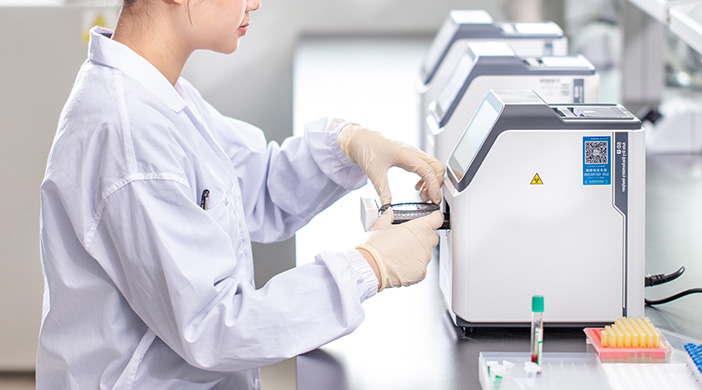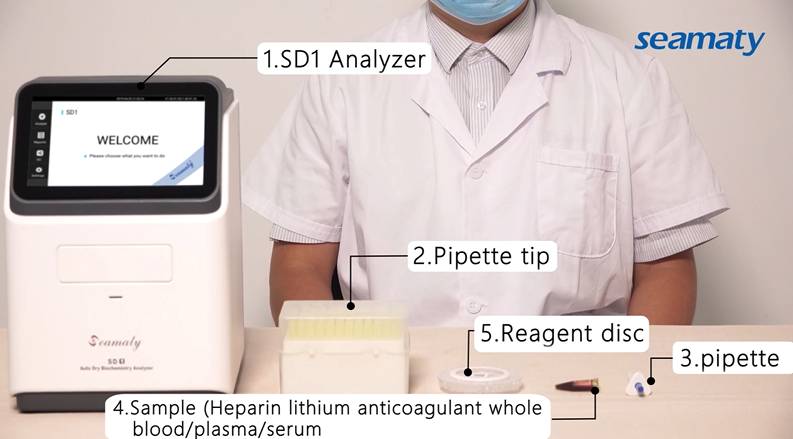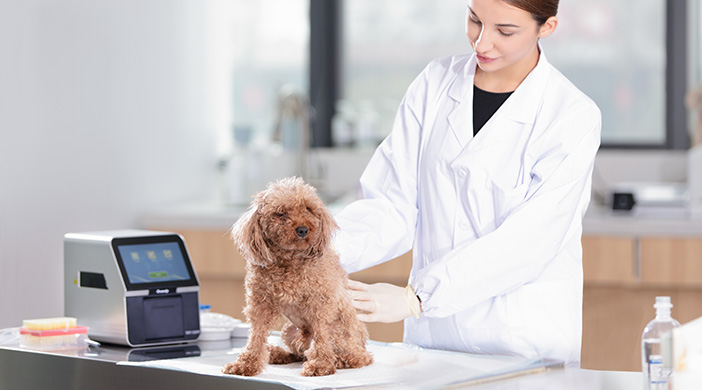1. What are in vitro diagnostic reagents?
In vitro diagnostic reagents are in vitro diagnostic reagents managed as medical devices, including reagents, kits, calibrators, quality control products and other products used for in vitro testing of human samples in the process of disease prediction, prevention, diagnosis, treatment monitoring, prognosis observation and health status evaluation.
IVD reagents can be used alone or in combination with instruments, apparatus, equipment or systems.
2. What are the categories of in vitro diagnostic reagents?
①Calibrators
②Quality control products
③Reagent kits, such as C-reactive protein test kits
④In vitro diagnostic reagents
⑤Other

3. Classification of in vitro diagnostic reagents
According to the risk level of products from low to high, in vitro diagnostic reagents are classified into Class I, Class II and Class III products.
The first category of IVD reagent products mainly includes the following two types.
(1) Microbiological culture media (not used for microbiological identification and drug sensitivity testing).
(2) Products for sample processing, such as haemolytic agents, dilutions, staining solutions, etc.
The second category of IVD reagent products, mainly includes.
(1) Reagents for protein assays
(2) Reagents for the detection of sugars
(3) Reagents for hormone detection
(4) Reagents for enzyme assays
(5) Reagents for the detection of esters
(6) Reagents for the detection of vitamins
(7) Reagents for the detection of inorganic ions
(8) Reagents for the detection of drugs and drug metabolites
(9) Reagents for autoantibody detection
(10) Reagents for microbial identification or drug sensitivity testing
(11) Reagents for other physiological, biochemical or immune function indicators.
The third category of in vitro diagnostic reagent products, mainly including.
(1) Reagents related to the detection of antigens, antibodies and nucleic acids of pathogenic pathogens
(2) Reagents related to blood grouping and tissue typing.
(3) Reagents related to human genetic testing.
(4) Reagents related to hereditary diseases
(5) Reagents related to the detection of narcotic drugs, psychotropic substances and toxic drugs for medical use
(6) Reagents related to the detection of therapeutic drug targets;
(7) Reagents related to the detection of tumour markers;
(8) Reagents related to allergic reactions (allergens).
4. How to judge the quality of in vitro diagnostic reagents?
The performance of in vitro diagnostic reagents is mainly reflected in the following three aspects.
1) Analytical performance: It mainly includes precision, accuracy, sensitivity, specificity, linear range and other performance.
(2) Diagnostic performance: the degree of sensitivity and specificity of the detected substances.
(3) Stability: the validity period, transport stability, open bottle stability, and accelerated stability of the product.
The raw materials and processes used for IVD reagents should have clear quality requirements and be validated. The performance of the final product meets the requirements for clinical use.
The main factors affecting IVD reagents are raw materials, process and reaction system establishment, performance assessment methods and approaches, establishment of internal reference products, clinical evaluation, etc.
4. Why is the core raw material of IVD reagents a breakthrough point for the in vitro diagnostic industry?
The quality of in vitro diagnostic products is largely determined by the upstream core raw materials. Core raw materials, such as diagnostic enzymes, primers, antigens and antibodies, are the most important strategic nodes in the upstream of the in vitro diagnostic reagent industry. Their quality is the most important factor in determining the quality of in vitro diagnostic reagents.
Among them, good antibodies are the prerequisite for being able to make good reagents. High-quality antibodies can perform optimally under the most suitable reagent preparation conditions. However, the modification and coupling of antibodies to form the final immunoassay system requires a number of complex processes. Variations in any of these processes can have an impact on the performance of the final reagent.



